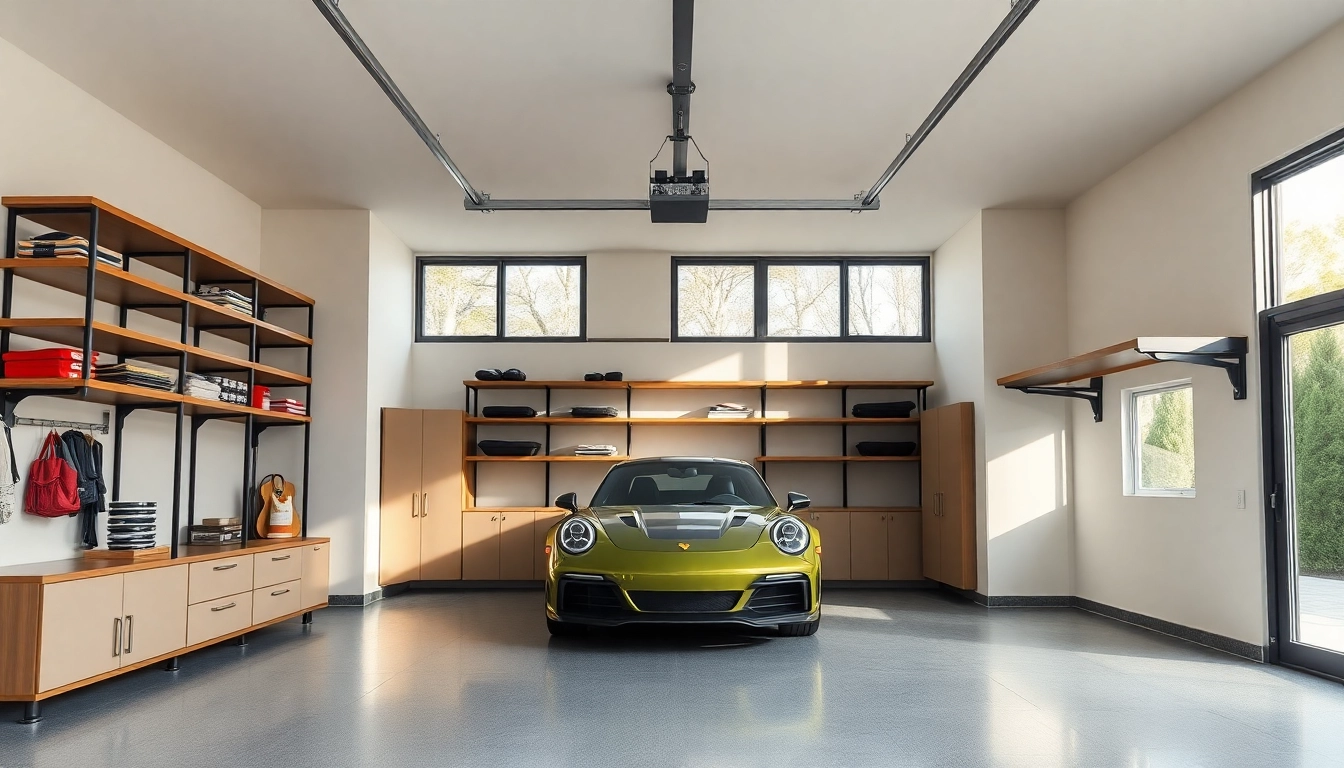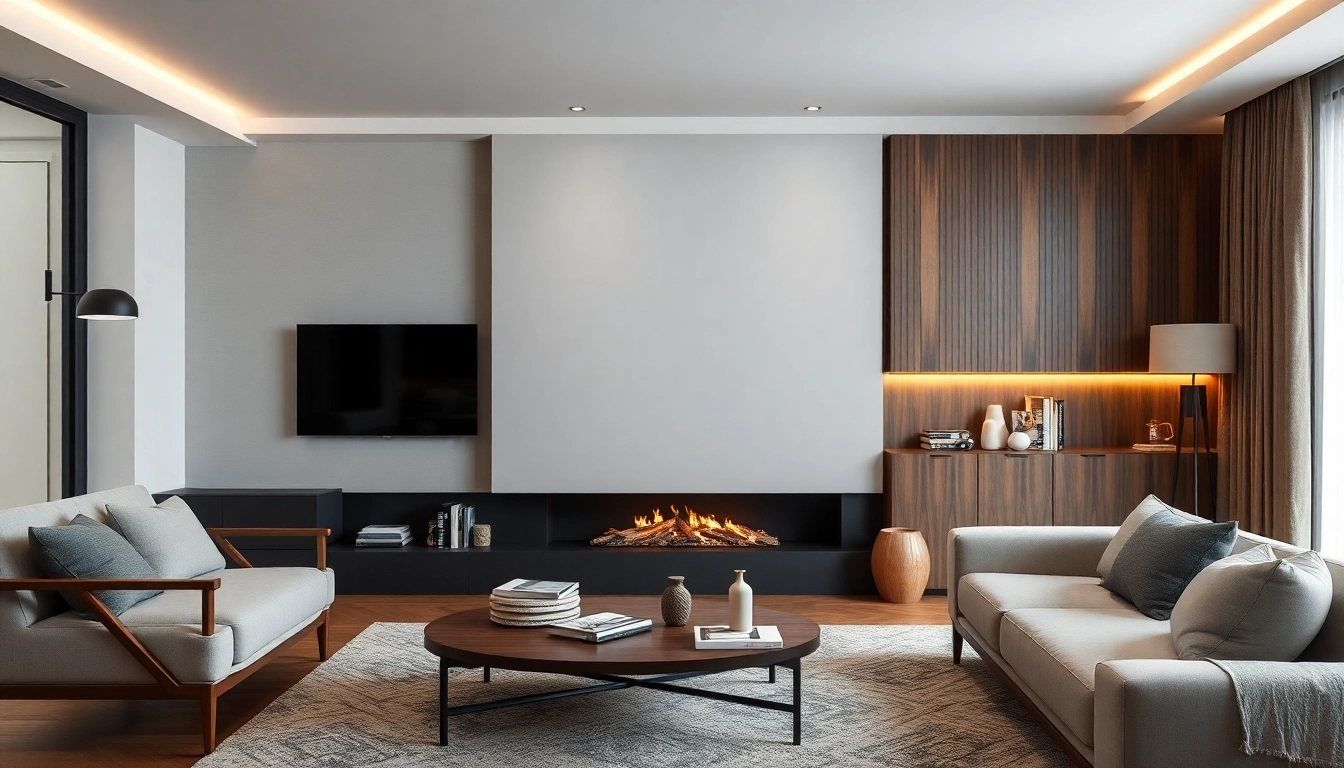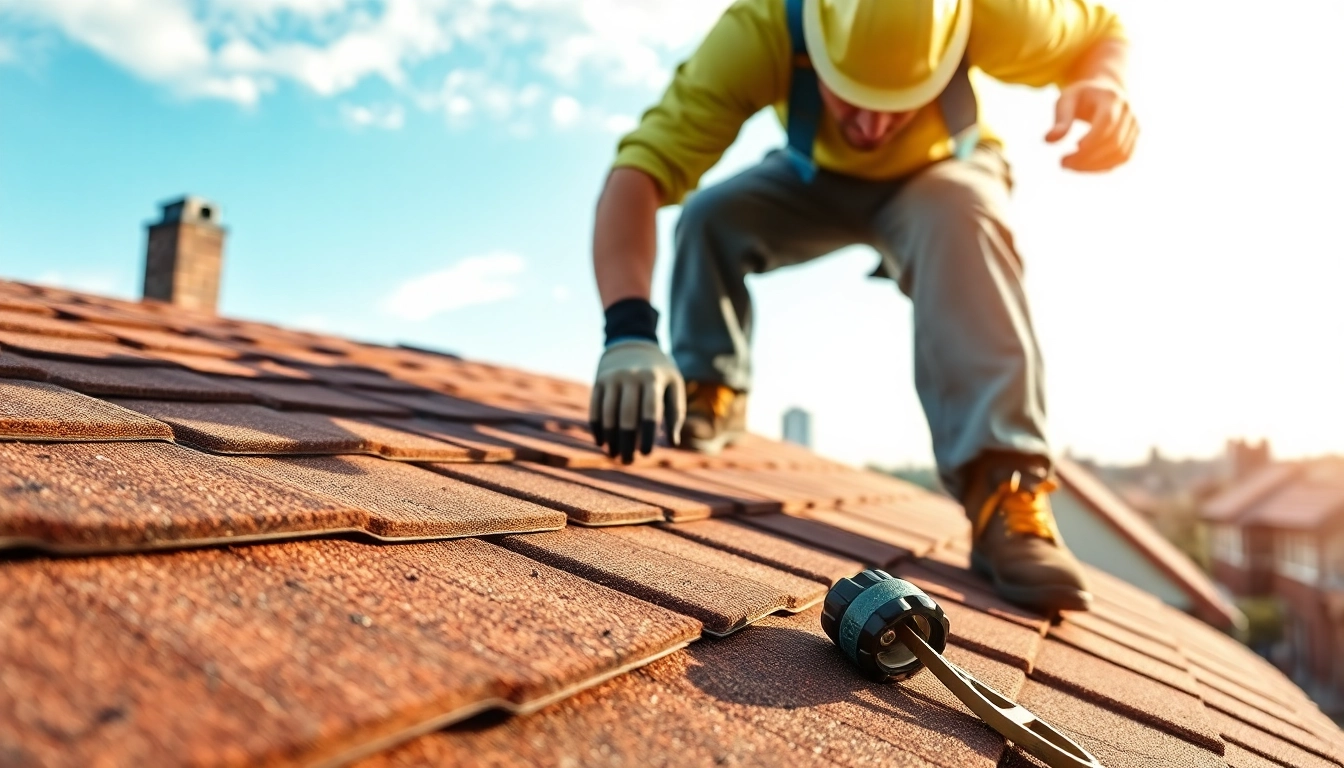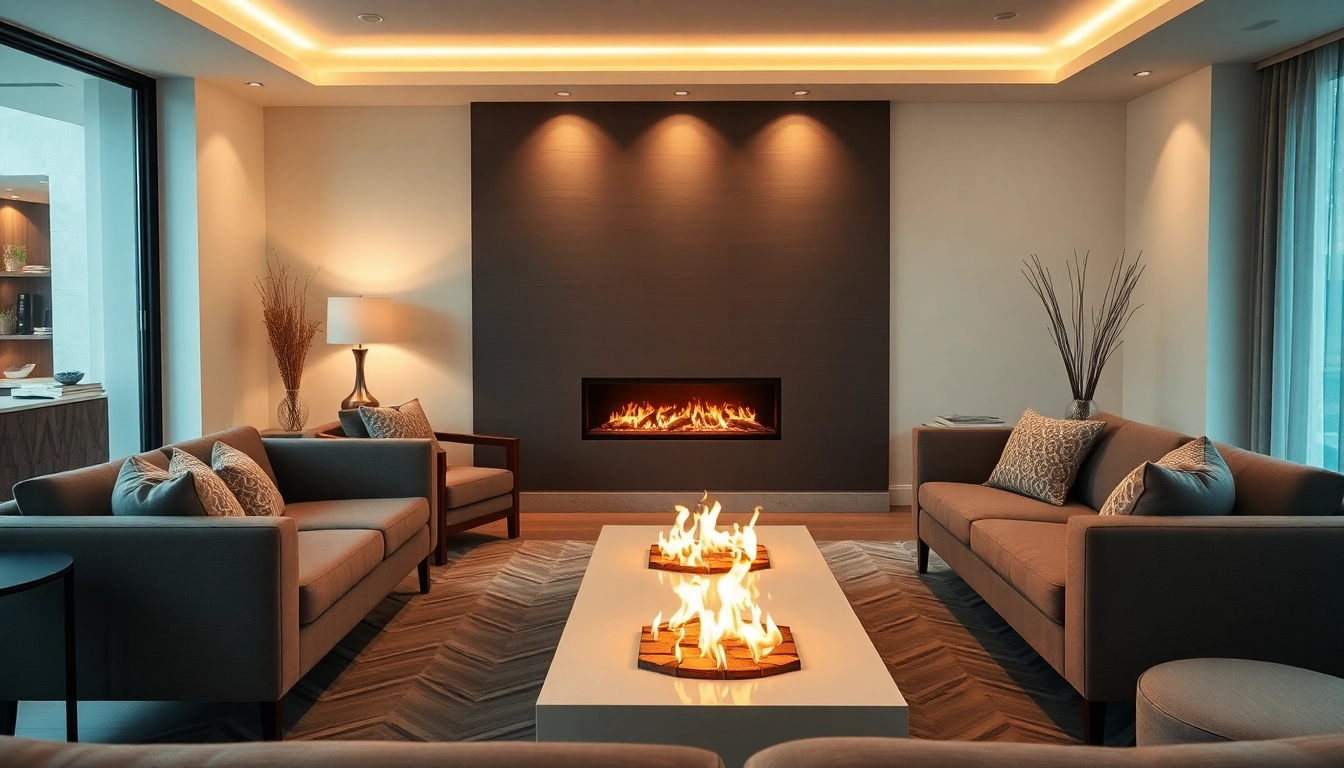Understanding Custom Garages
What Are Custom Garages?
Custom garages are tailored structures designed to meet the specific needs and preferences of homeowners. Unlike standard garages that come in set sizes and configurations, custom garages allow for a wide range of design options, accommodating not only vehicles but also storage, workspace, and personal hobbies. These garages can be built from various materials, such as wood, metal, or vinyl, and can include features like specialized doors, storage systems, and workspace areas.
For those considering enhancing their property, custom garages can provide a unique blend of functionality and aesthetic appeal, significantly increasing property value and utility.
Advantages of Custom Garages
The benefits of choosing a custom garage over a standard one are numerous:
- Personalization: Homeowners can select everything from size and layout to materials and colors, ensuring the garage compliments their home’s architecture.
- Functionality: Custom garages can be designed to meet specific needs—whether that’s adding a workbench, space for different vehicles, or ample storage solutions.
- Quality Control: Custom builders often use higher-quality materials than traditional garages, leading to greater durability and longevity.
- Increased Property Value: A well-designed custom garage can significantly increase a home’s resale value by enhancing curb appeal and providing additional functionality.
Essential Features to Consider
When planning a custom garage, it’s important to consider the various features that can enhance its utility and aesthetic:
- Size and Layout: Determine how many vehicles you need to accommodate and whether you need additional functionality (like a workshop).
- Doors: Choose the right type of doors (roll-up, sliding, or traditional swing doors) to match your style and ensure ease of access.
- Storage Solutions: Plan for shelving, cabinets, and tool organization systems to maximize space.
- Insulation and Ventilation: Proper insulation can help maintain a comfortable temperature, while good ventilation can prevent moisture buildup.
Designing Your Custom Garage
Choosing the Right Layout
Layout is one of the most critical aspects of a custom garage. The layout not only determines how efficiently you can use the space but also affects how the garage interacts with the rest of your property.
Consider whether you want a single or double garage and if you need additional space for a workshop or other uses. You could opt for a layout that allows your vehicle to be parked alongside storage units or tools, ensuring everything is within reach without cluttering the space.
Interior Design Ideas for Custom Garages
The interior of your garage can reflect your personal style while being functional. Here are some ideas:
- Opt for durable flooring materials like epoxy, which are easy to clean and resistant to oil stains.
- Incorporate adequate lighting, such as LED strips or track lighting, to illuminate the workspace effectively.
- Utilize vertical storage systems like pegboards or wall-mounted racks to save floor space.
- Add decorative elements that match your home’s theme, such as color-coordinated storage units or wall art.
Selecting Materials and Finishes
Your choice of materials can enhance both the aesthetic and functional aspects of your garage. Options include:
- Wood: Warm and aesthetically pleasing but requires maintenance for longevity.
- Metal: Highly durable and requires minimal upkeep; often preferred for a modern look.
- Vinyl: Affordable and available in multiple colors, ideal for low-maintenance needs.
- Insulation Materials: Choose quality insulation to keep the garage temperate, especially if you’re using it as a workspace.
Cost Factors for Custom Garages
Breaking Down the Expenses
The cost of custom garages can vary significantly based on several factors, including size, materials, and labor costs. A detailed breakdown might include:
- Construction Costs: Labor and materials are the most significant expenses, with prices varying based on location and design complexity.
- Permitting Fees: Local laws may require permits for construction, adding to the overall cost.
- Interior Finishes: Depending on the level of customization, interior features like flooring, cabinets, and lighting can also impact your budget.
- Utility Installation: If you plan to add electricity or plumbing, these costs can add up quickly.
Financing Options for Your Custom Garage
Given the potential expenses, homeowners often seek financing options to manage investment costs:
- Home Equity Loans: Tapping into home equity can provide a cost-effective way to fund your garage.
- Personal Loans: Options are available from banks or online lenders for those who do not want to use home equity.
- Contractor Financing: Some builders offer in-house financing or payment plans to spread out the costs.
- Credit Cards: For smaller projects, using a credit card might provide immediate funding; however, this could lead to high-interest costs.
Cost Comparisons with Standard Garages
When assessing whether to go with a custom garage or a standard option, consider the return on investment:
- Standard Garages: Typically cheaper but offer less flexibility and personalization.
- Custom Garages: The initial investment may be higher, but the potential for appreciation in property value and added functionality can allay those higher costs in the long run.
- Long-Term Savings: Custom garages built with quality materials can lead to lower maintenance costs and greater durability over time compared to cheaper alternatives.
Finding the Right Builder
What to Look for in a Custom Garage Builder
Choosing the right builder is crucial to ensuring your custom garage meets your expectations. Here are key factors to consider:
- Experience: Look for builders with a proven track record in constructing custom garages.
- Portfolio: Evaluate previous projects to gain insights into their design capabilities and style.
- Reviews and Testimonials: Research online reviews or ask for references to gauge customer satisfaction.
- Licensing and Insurance: Ensure the builder is licensed and insured to protect yourself from liability.
Questions to Ask Before Hiring
When interviewing potential builders, ask the following:
- What is your construction timeline?
- Can you provide a detailed estimate, including labor and materials?
- What warranty do you offer on your work?
- How do you handle changes during the building process?
- Will you handle all required permits and inspections?
Assessing Past Projects and Reviews
It is essential to properly assess a builder’s past work:
- Request a list of completed projects similar to yours and visit these sites if possible.
- Look for consistency in quality across different projects.
- Pay attention to the builder’s ability to meet deadlines and budgets in their reviews.
- Engage with previous clients to understand their experiences with the builder personally.
Maintenance and Longevity of Custom Garages
Regular Maintenance Tips
Custom garages, while generally built to last, do require regular maintenance to ensure longevity:
- Inspect Roofs: Regularly check for leaks or damages, especially after severe weather.
- Clean Gutters: Ensure gutters are free of debris to avoid water damage.
- Check Doors: Regularly inspect and lubricate garage doors and their mechanisms.
- Organize Contents: Keep the inside organized to prevent clutter and facilitate airflow.
Enhancing Durability and Performance
To boost the durability of your custom garage:
- Invest in quality materials for both construction and finishes to minimize wear and tear.
- Consider weatherproofing solutions, particularly in areas prone to severe weather.
- Install proper insulation to regulate temperature and protect contents.
- Regularly check for pest infestations and implement preventive measures.
Latest Trends in Garage Upkeep
Staying updated on trends can enhance your custom garage’s performance:
- Smart Technology: Utilize smart garage systems that integrate security features and automation.
- Eco-Friendly Practices: Explore sustainable materials and energy-efficient designs for longevity and environmental benefits.
- Flexible Spaces: Create multi-functional areas that can shift usage based on needs, such as storage, workspace, or relaxation.



